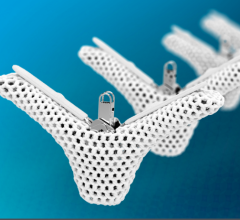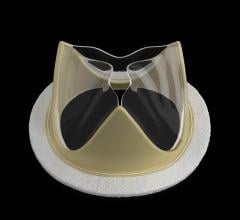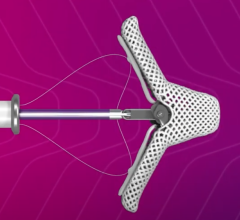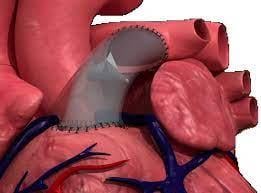
June 13, 2023 — PECA Labs, a medical device company reimagining vascular grafts and valves with durable polymeric cardiovascular devices designed to fit, grow, and last, today announced the successful first-in-human implant of the MASA Valve. Designed for pediatrics, the MASA Valve is a polymeric valved conduit for pulmonary valve reconstruction. The novel polymeric valve previously received Humanitarian Use Device (HUD) and Investigational Device Exemption (IDE) from the U.S. Food and Drug Administration (FDA). The company has begun enrollment for the study at four clinical sites in the U.S. as part of its MASA Valve Early Feasibility Clinical Study (MVEFS).
Children’s Hospital of Philadelphia (CHOP), a world-renowned children’s hospital and research institute, became the first site in the world to implant a MASA Valve in a pediatric patient. This marks a significant milestone in PECA Labs’ mission to bring the first polymeric pulmonary valve to market and improve outcomes for patients. The MASA Valve was implanted in a 21-month-old child who had previously undergone an operation at approximately one year of age with a homograft (human tissue valve). The homograft had become severely stenotic and required immediate replacement, which was successfully achieved with a 14mm MASA Valve. The patient showed encouraging early results from the MASA Valve implantation, with promising valve functionality on early assessment. This successful milestone moves PECA Labs one step closer towards realizing its mission to enable pediatric patients to benefit from this technology, which aims to reduce the total number of re-interventions and re-operative procedures.
Artificial grafts and valves play a vast and important role in the treatment of vascular diseases and disorders in both pediatric and adult populations, with approximately 4,000 U.S. children requiring pulmonary valved conduits each year. Existing valve implants are made with metal, ceramic or bioprosthetic materials, which can cause biological responses, lack customizability, cannot be grown, and are destined to fail within five to 10 years. Failed conduits require repeat surgeries and interventions, costing more than $100,000 per patient on average, and current interventions for failed implants don’t resolve the core reason for failure. As a result, cardiothoracic surgeons and interventionalists are left with no viable long-term solutions for pediatric patients with congenital heart defects.
PECA Labs developed the MASA Valve to be made entirely of polymeric materials that help avoid the body’s immune response and valve calcification that are inherent to biologic valved conduits and the leading cause of valve failure. Engineered for greater durability, the MASA Valve is constructed of PECA’s proprietary conduit and leaflet membrane, allowing for the production of a wide array of sizes to ensure a match with each patient’s unique anatomy. The MASA Valve could help reduce the need for replacement surgeries and interventions, thereby reducing the risk of morbidity and mortality.
“The MASA Valve does not use biologic or foreign tissue, which is expected to reduce the chance of calcification, immunity-based rejection, and valve shrinkage. The valve design also aims to reduce the amount of anti-thrombogenic drugs administered to the patient over the course of their lifetime. These factors should help greatly improve patient outcomes and could lead to fewer valve replacements over a child’s lifetime,” said Dr. David Morales, executive co-director of the Heart Institute at Cincinnati Children’s Hospital, and principal investigator in the MASA Valve trial. “If the study is successful, the MASA Valve could offer a significant improvement in the treatment of cardiovascular congenital heart defects in children and save the patients and the health system significant amounts of money spent on cardiac care.”
If approved, the MASA Valve would be the only non-biologic valve replacement option for this important procedure, and aims to be the first fully polymeric valve on the market.
“In designing the MASA Valve, we aimed to use our polymer platform to combine the best characteristics of homograft tissue, which reduces the antithrombotic therapy required, and mechanical valves, which offer improved durability, supply availability, and resistance to both calcification and shrinkage. We then improved upon them with a novel bi-leaflet design,” said Doug Bernstein, CEO, PECA Labs. “We are optimistic that the current study will validate our belief that the MASA Valve represents a new gold standard for congenital heart patients.”
The non-randomized MVEFS is slated to initially enroll 10 to 15 patients at up to five sites. Patients will be independently assessed via echocardiographic analysis of regurgitation and valve function, immediately post-operation, at 30 days, at six months, and at one year, followed by annual assessment until year five.
Data on re-intervention and re-operation are due to be presented with the final data and compared with published results from a pivotal trial of a competitive device.
For more information: www.pecalabs.com

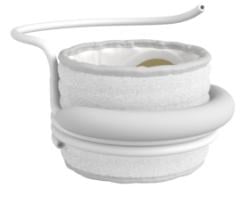
 December 24, 2025
December 24, 2025 





